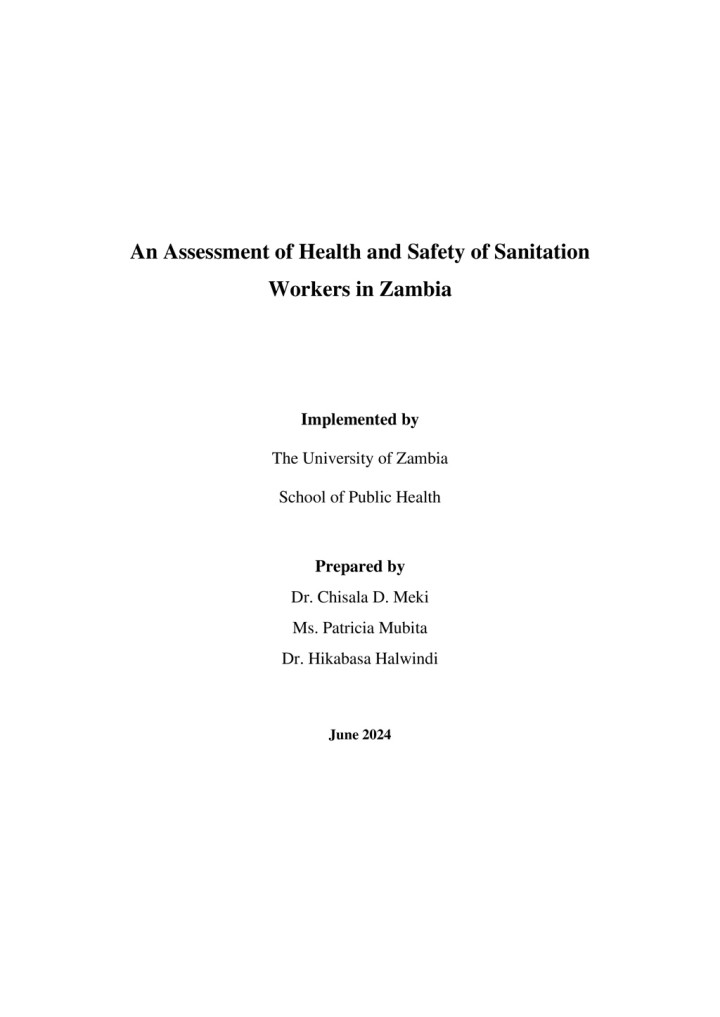An Assessment of Health and Safety of Sanitation Workers in Zambia Dr. Chisala D. Meki; Patricia Mubita; Dr. Hikabasa Halwindi (2024)
Sanitation is a cornerstone of healthy communities. Pit emptiers play a critical role in maintaining public health and safety by removing waste from pit latrines and septic tanks. Despite their essential work, these individuals often toil in obscurity and face significant challenges accessing adequate health and safety protections, particularly in developing countries.
This study investigated the health and safety of sanitation workers in Zambia and found that more than 50% of sanitation workers were informal emptiers facing various physical, biological, chemical, and ergonomic hazards. These workers have limited access to protective equipment, tools, transportation, vaccinations, and medical checkups. Illness was the major cause of absenteeism, with respiratory issues being the most common. The study also revealed that some sanitation companies lacked proper guidelines and safety protocols and that existing sanitation laws are inadequate and poorly enforced. Beyond these issues, sanitation workers struggle with stigma, poor working conditions, limited jobs, limited resources, and unprofitable work.
Bibliographic information
Dr. Chisala D. Meki; Patricia Mubita; Dr. Hikabasa Halwindi (2024). An Assessment of Health and Safety of Sanitation Workers in Zambia The University of Zambia School of Public Health
Filter / Tags
Health and hygieneResearch publicationsEnglishImport to Sanitation Workers PlatformHealth & Safety
Downloads
An Assessment of Health and Safety of Sanitation Workers in Zambia
Type: application/pdf
Size: 1.59 MB

